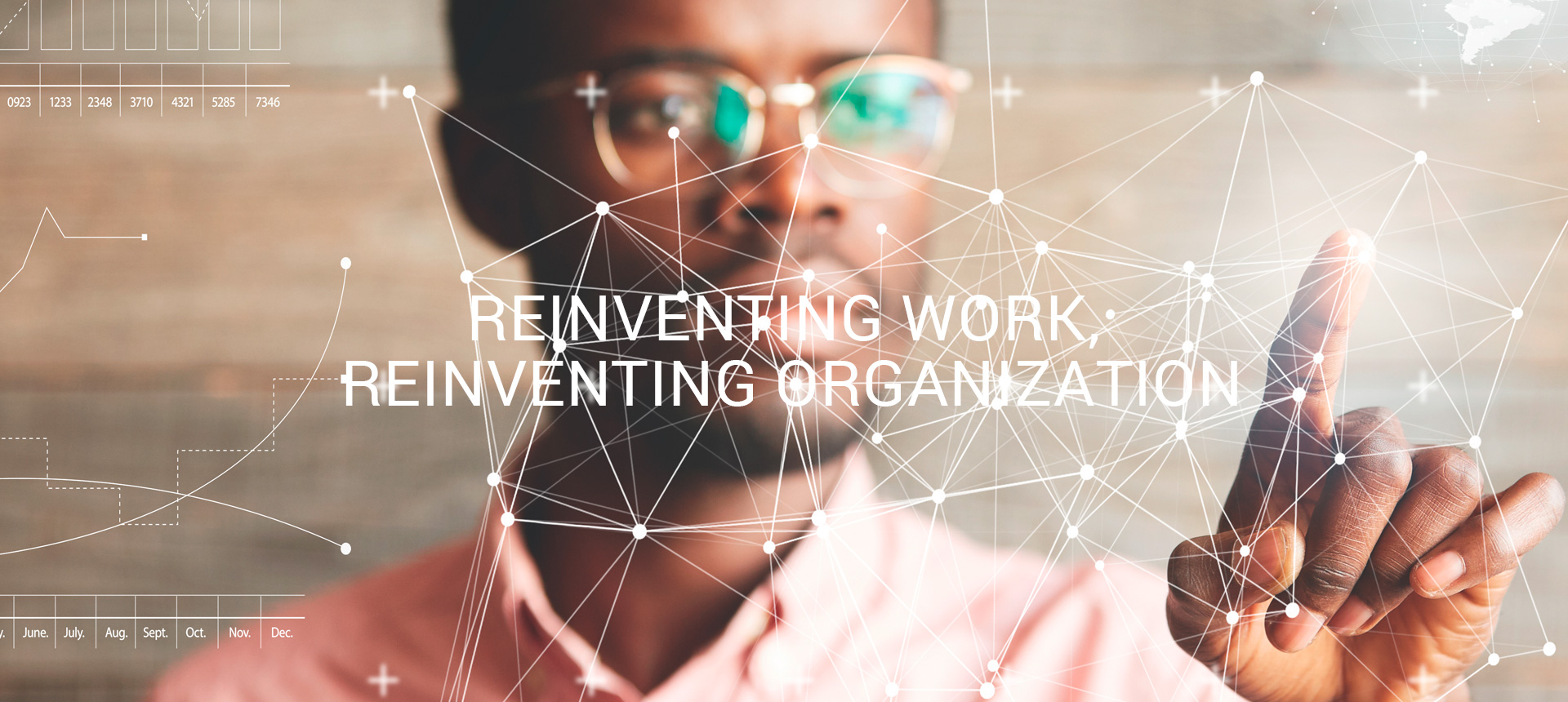

In 1947 General Motors asked its employees to take part in an essay contest with the title theme "Why I Like My Job" An astonishing 174,854 workers at GM answered the call and submitted their essays. Peter Drucker, who just a few years earlier had systematically studied the inner workings at General Motors and had thereby "invented" the discipline of management, was one of the five judges who evaluated the essays and eventually picked the 40 winners.
Our jobs, i.e. the way we conduct our work and our overall concept of work have changed significantly, even dramatically since 1947. Peter Drucker anticipated and observed these changes - like the rise of the knowledge worker, the emergence of the entrepreneurial society, and the increasing need to "manage oneself" - and described them in detail in books like "Landmarks of Tomorrow" (1959), "The Age of Discontinuity" (1969), "Innovation and Entrepreneurship" (1985), "Management Challenges for the 21st Century" (1999), and "Managing in the Next Society" (2002).
How will the nature of work and the workforce look like a few years or decades from now?
Will we still have the traditional corporations with their hierarchies providing the workplace for millions?
How will SME’s be configured?
Will all workers ultimately become knowledge workers?
In which environment will knowledge workers conduct business? Still at a desk at the office, or rather from home? Will they work for one or for several companies and organizations - in a mixture of jobs and parallel careers?
What will drive and motivate knowledge workers of tomorrow? A good pay? Or perhaps passion and purpose?
To what extent will the traditional "employee society" evolve into an "entrepreneurial society"?
Which will be the impact of these structural changes on companies, corporations and organizations and how can they best adapt?
What role will social entrepreneurs and the non-profit sector play in the future? What regulatory power will governments and trade unions ideally have? And how will the education sector and, last but not least, business schools change - and indeed have to change - to address the challenges of tomorrow?

1. Karen Mok (US)
"The Worker as a Bridge between the External and the Internal Business Environment"

3. Victoria Schlusche (DE)
"Cross-thinking allover -The Future belongs to those who connect"

2. David Hurst (CA)
"Reinventing Work and Reinventing organizations by Rediscovering Ourselves"

3. Shrey Goyal (IN)
"Work, Meet Life: Employees, Organizations, and Communities in the 21th Century"

Lynda Gratton
Professor of Management Practice at LBS
Founder of the Hot Spots Movement

Deepa Prahalad
Business strategist
and consultant

John Peters
CEO, GSE Research Ltd;
former Chief Executive at Emerald Group Publishing

Elizabeth Edersheim
Creator of ThEME,
Author "The Definite Drucker"